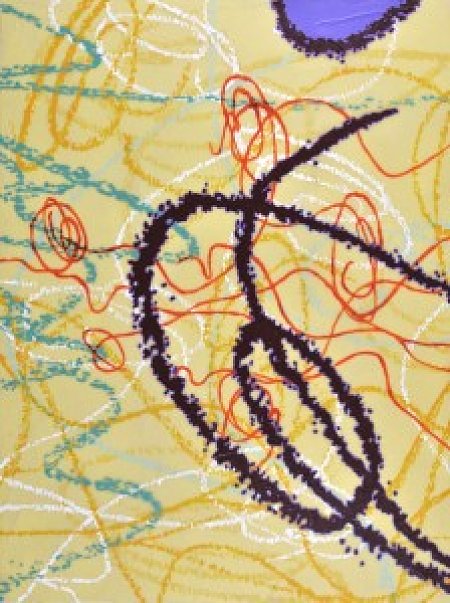
Numbers
It’s true that I try only to focus on writing, because I have a strong feeling that if I continue writing, I will survive these dreadful times. Writing is why I was brought to this world in the first place; otherwise why such an urge to hold a pen from such an early age? Why such an urge to document everything and to remember every little detail, as though for posterity? This is something beyond and above me, something I was given for free but that I have to repay, since it always forced me to action. Every time there is a movement inside me because I see something unusual, this movement propels me to paper, but things that recently started happening in my life are so incomprehensible that I’m not sure that I can find an explanation, that I can frame these events and hang them on the wall of my short story. What’s happening is so big and so imposing that I’m not yet skillful enough to describe it.
Should I describe my father’s eyes behind his thick-lensed glasses when he was looking at me and saying arrivederci? He told me that we’ll meet again soon, while being led away by two policemen; my father was always smart, and before this day he kept telling me that this might happen, but I never could understand why, if he knew that somebody would soon come after him, he didn’t do anything to escape. And could we have gone somewhere else? We have a faraway relative in Switzerland, and we could have tried to cross the border and reach comparable safety, but for some reason we never did. Before this, one of the passersby, a petite man in a grey, threadbare coat with hair of indistinguishable color, whom I would not even have noticed if he hadn’t stopped me, made a little gesture while walking toward me on the street.
He gestured at me to stop and to go to the side of the sidewalk, to the steps of a caffé where my father always urged me to stand while drinking coffee instead of sitting, because drinking coffee while standing costs slightly less… This man motioned me to the side and told me, “Signorina, once your father treated my wife for free when she was very sick; my wife died anyway, but it does not matter right now… I know him to be a good man, and I want to warn you that I know that they will come to your flat soon and take him away; whatever you want to do to escape this situation, do it, but don’t tell anybody that I have told you this, understand?” I’m rather awkward in conversations, and he was, too, so we both said several times “thank you” to each other and immediately separated, as though even standing on the street together, sharing the same knowledge, was risky.
I told Papá about this man, and he could not remember who it was, despite my descriptions of a gray coat and indistinguishable grayish hair; my father just kept repeating, “There were so many of them, these poor Italian peasants, all saying that they have no money to pay for medical services, and there were so many that I helped for free and so many that I could not help for any amount of money, that I do not remember this noble gentleman, and he indeed seems noble, despite his peasant upbringing… But where will we go, Rita? Do you think there is a way to escape? Why not stay in our nice apartment, in relative safety, and hope that the danger will pass on its own? Besides, you didn’t do anything bad, and you are such a nice girl, whoever will look at you will see no danger in you, and maybe nobody will ever find out about your Jewish blood… It’s in Australia that you will be safe, with your mother and her Russian officer… But who will let us go to Australia? Maybe you can try to write to your mother and see if she can do something for you…”
And so he spoke, and so he stayed in the apartment, and so he was led away, though they didn’t take me; for some reason that happened later. And now, sitting on this wretched train, going somewhere with a slow yet steady speed, I don’t know how to describe all that is happening. If I describe my father’s tears and his hat that fell from his head, the hat he didn’t even bother to pick up, and if I describe his shoes or a book that he tried to take with him under the ignorant eyes of the policeman, would it be enough for the story? My father’s nervous voice and his worry for me?
Does it make any sense, these little details described by a skillful craftsman of words, who only sees these details but does not know what caused them? What is the overall plan? Who needed for Olga to jump from the balcony, my father to be led away from me for no reason, and for me to stay, with my talent for words, now unable to open my mouth?
I know that my only value is my talent with words… If I don’t practice it and don’t hone it to become a writer like those published by Fratelli Scarfati, then I will be like everybody else; I know that if I don’t have my own very special words to speak to readers whom I will never meet, then I will share everybody else’s fate and be doomed.
